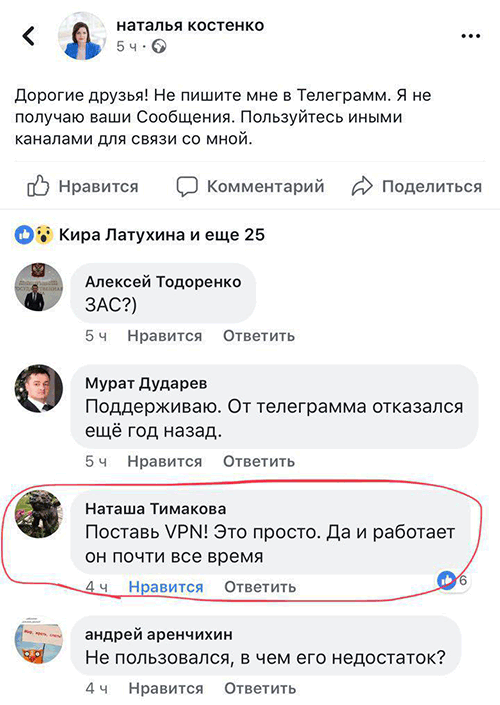Roskomnadzor threatens 15 hosting providers. Whatsapp and viber can also block

Moscow, April 30, 2018
For almost a week, the number of blocked IP addresses in the Roskomnadzor registry remains at about the same level: about 16.4 million (uploads are updated hourly on GitHub ). The hunt for Telegram continues: Russia has become the fifth country in the world that has banned this messenger, followed by Iran, Oman, Pakistan and China.
On April 28, the regulator removed two large Amazon subnets from the black list and thus reduced the number of blocked IP addresses by more than three million: from 17.8 million to 14.6 million. He promised to unblock the remaining subnets of the hosting providers, “to avoid restrictions on access to respectable Internet resources. ” But it almost did not move from a dead end: every day Roskomnadzor unlocks several dozens of individual IPs, but instead puts a few dozen new ones in the registry.
')
The situation is far from calm. A significant part of the Amazon subnets is not available from Russia . The same applies to other major hosters. And Roskomnadzor at any time can deliver a new blow to the Russian Internet, if it blocks access to dozens of foreign hosting companies. At least, such a threat was voiced today by the deputy head of the department, Vadim Subbotin .
At a meeting dedicated to the situation around blocking access to Telegram, he said that Roskomnadzor is negotiating with more than 15 hosting providers to stop providing access to IP addresses to the Telegram messenger. If hosting companies do not cooperate, they can be blocked in Russia. While Amazon and Google ignore the requirements of Roskomnadzor , smaller hosters risk losing a significant portion of their customers if Roskomnadzor fulfills the threat.
“We are currently negotiating with more than 15 hosting providers. <...> But to honestly promise that we will not block the subnets of these foreign hosting providers in the event that they also refuse to meet Russian legislation, I cannot now, ”said Subbotin. He also added that to date, the regulator has blocked about 50 VPN services and anonymizers, which provided access to Telegram.
Roskomnadzor knows about all the mechanisms that Telegram uses to continue working, and only systematically changing IP addresses allow it to stay afloat, Subbotin said : “Roskomnadzor is improving its tools every day to fulfill the decision of the Court to restrict access to Telegram in Russia”.
So, while Roskomnadzor is working in the “point” blocking mode, in order not to warm up mass protests , and “it is improving its tools every day.” How effective is this treatment? After all, Telegram still works without failures (except for the cluster overheating due to a power outage in the Amsterdam region ), and some respectable resources still report problems. Even government officials advise using a VPN to bypass the block. For example, the Prime Minister’s press secretary, Natalya Timakova, in a Facebook conversation advised her friend to put a VPN to bypass the lock and said that Telegram “works almost all the time” with him.

As we see, even Russians who are far from computers have mastered ways to bypass locks, but Roskomnadzor’s war against Telegram continues.
For the convenience of tracking Amazon subnets added to the registry and blocked by the Amazon provider, the @DarkBit user has launched a small monitoring service . It shows that Roskomnadzor still blocks a large number of large Amazon networks. Because of this, some sites may not be available.
Amazon subnets blocked



Most likely, the current lull is only temporary. For example, Nikolai Nikiforov, head of the Ministry of Communications and Mass Communications, said today that if the FSB does not receive Viber encryption keys, it will be blocked in the same way as Telegram. This may turn out to be an even more sensitive blow for users, as more than 80 million Russians use the messenger of the Belarusian development.
By the way, the October investigation by Republic.ru showed that in the preparation of the terrorist attack in St. Petersburg, WhatsApp was used more than the Telegram. So, theoretically, blocking also threatens WhatsApp too.

Moscow, April 30, 2018
Note: When commenting on this material, please follow the rules of Geektimes. Please refrain from insults and toxic behavior. Postmoderation works in the comments.
Source: https://habr.com/ru/post/357980/
All Articles